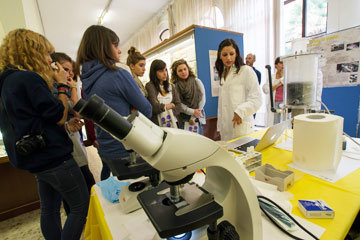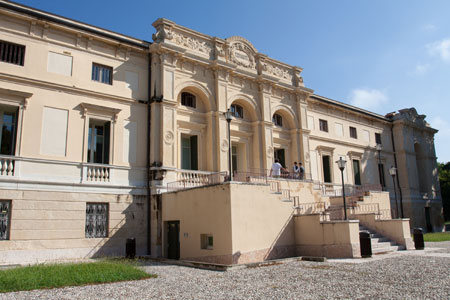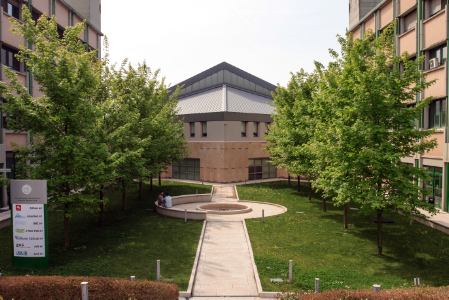
Speaker:
Dott. Andrea Daga, Head of Laboratory, Scientific Institute E. Medea
- University of Padova
Monday, November 27, 2017
at
2:30 PM
Sala Verde - Piramide Cà Vignal
The ER comprises two uninterrupted domains, the nuclear envelope and the peripheral ER. Branching out from the nuclear envelope, the peripheral ER is composed of flat sheets and tubules that distribute throughout the cell as a continuous, dynamic membrane system. ER architecture is thought to be maintained by the action of specialized proteins controlling membrane shape, interactions with microtubules and homotypic membrane fusion. We are interested in understanding how the interplay between these ER shaping proteins determines overall ER morphology because, ultimately, morphology impacts function. We have identified atlastin as the ER membrane fusogen and established that its loss causes ER fragmentation and yet found that this fragmentation does not appear to affect a crucial ER function such as the secretory pathway. In this endeavor we are using Drosophila because its minimal genetic redundancy allows to study more conveniently how other putative ER-shaping proteins such as reticulon (whose interaction with atlastin will be discussed in detail) and REEPs control ER morphology in vivo. Interestingly, all the proteins mentioned have been implicated in the neurological disorder Hereditary Spastic Paraplegia. However, we do not understand why mutation of human ER-shaping genes results in such specific neurological diseases. With this work we are setting up the foundation to bridge the gap between form and function in ER biology
- Programme Director
-
Paola
Dominici
-
External reference
-
- Publication date
-
November 22, 2017








